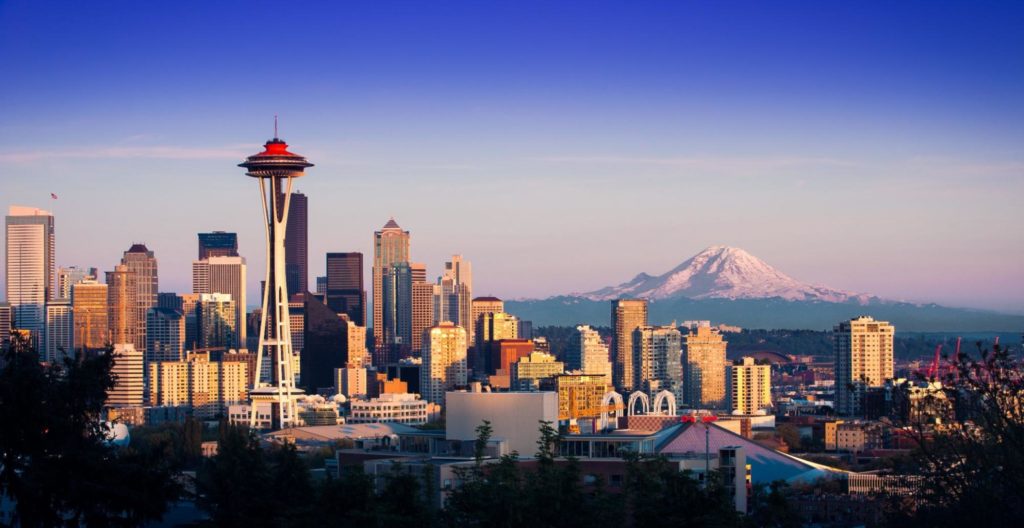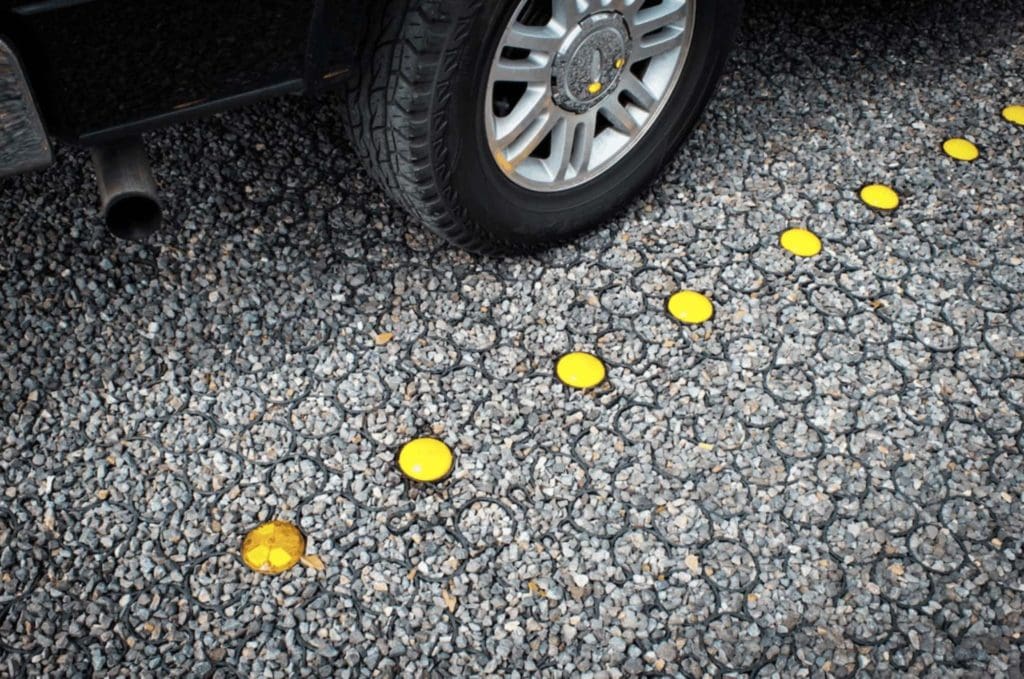Utilizing permeable paving in Seattle is a sustainable solution for managing the ample stormwater runoff created by the persistent precipitation of the Pacific Northwest.

Permeable paving allows water to permeate through the surface, which reduces the amount of water that runs off into the stormwater system and replenishes the groundwater.
There are various options for permeable paving materials, patterns, and designs, so it can be challenging to decide which is the best for your project. This article will discuss the best options for permeable paving in Seattle, including the benefits and drawbacks of different materials, patterns, and designs, in order to help you make an informed decision.
What is Permeable Paving?
Permeable paving refers to a type of pavement or surface that allows water to pass through it rather than run off. Permeable paving can include a variety of materials and techniques, such as porous bricks, open paver patterns, and plastic grid-style systems.
Water permeable materials have small openings or pores that allow water to pass through them and be absorbed into the ground rather than running off and becoming stormwater runoff.
Permeable paving is useful for various applications, including driveways, sidewalks, patios, and parking lots. The purpose of permeable paving is to reduce the amount of stormwater runoff and replenish the area’s groundwater.
Why Use Permeable Pavers in Seattle?
Seattle has many paved roads and concrete sidewalks, which makes it largely impermeable. This impermeability can strain the city’s sewage and drainage systems and deprive the area of crucial groundwater supply. Using permeable pavers in Seattle can help to remedy these issues by allowing water to pass through their surface down into the soil below.
Permeable Paver Options
There are several options for permeable pavers in Seattle, but the three that are most common are:
- Plastic grid systems
- Open paver pattern
- Porous bricks
These options have advantages and disadvantages when building durable driving and walking surfaces that need to allow for water absorption.
Plastic Grid Systems
Plastic grid permeable paving systems, like the paving solutions manufactured by TRUEGRID, are permeable pavers that use plastic grids filled with gravel or grass to create a porous surface. The grids are made from durable plastic that can withstand heavy loads and extreme weather conditions.

The grids interlock together to create a stable surface for vehicles and pedestrians while also allowing water to pass through and infiltrate into the ground below. The grids are filled with gravel, grass, or other materials, which will help to keep the surface stable and prevent erosion.
There are several advantages to using a plastic grid system for permeable paving:
Durability
The plastic material is highly resistant to cracking, warping, and fading, which makes it a durable and low-maintenance option.
Cost-effective
The plastic grid system is less expensive than traditional paving options such as concrete, asphalt, or pavers.
Easy Installation
The grid system is lightweight and easy to install, which can save on labor costs.
Eco-friendly
Grids made by TRUEGRID are made from 100% post-consumer recycled HDPE plastic.
Porous Bricks
Porous bricks are bricks that have small holes or pores in them. These pores allow air and water to pass through the brick, which can be beneficial for various construction applications.
Porous bricks are good for drainage because the small holes or pores in the bricks allow water to pass through them. When porous bricks are used as alternatives to paving, they can help to improve drainage by allowing water to percolate through the soil rather than remaining on the surface. This porosity prevents water from pooling on the surface, which can lead to erosion and other issues. Additionally, porous bricks can help improve drainage by allowing excess water to be rapidly absorbed into the soil, which can help reduce the risk of flooding and water damage while also helping to replenish groundwater.
Porous bricks can be an effective option for permeable paving in Seattle, however there are also some potential drawbacks, including:
Cost
Porous bricks can be more expensive than other permeable paving options, such as porous asphalt or permeable concrete. This can make them less cost-effective for large projects or tight budgets.
Installation
Porous bricks may require specialized equipment and trained professionals to install them properly. This can add to the project’s overall cost and make it more difficult to find a qualified contractor.
Durability
Porous bricks can be less durable than their more solid counterparts due to their honeycomb structure. In addition, an area that experiences significant cold and frost heaves can warp and raise brick and paver installations.
Open Paver Patterns
Open paver patterns refer to the way that pavers are laid out and arranged on a surface. An open paver pattern is one in which the pavers are laid so that they have significant gaps or spaces between them, as opposed to a closed pattern, in which the pavers are laid close together.
The more significant gaps between pavers laid in an open pattern can allow water to pass through, which prevents water from pooling on the surface or draining into Seattle’s streets and sewers.
An open paver pattern can be an excellent option for permeable paving in Seattle, but there can also be some drawbacks:
Shifting
An open paver pattern is more susceptible to shifting, which can cause individual pavers to rise and sink, and could create an unsightly tripping hazard.
Installation
Installing pavers can require a lot of hard manual labor and experience, and may require specialty tools and trained professionals.
Cost
Pavers can be expensive, especially when compared to plastic grid systems.
Use TRUEGRID Permeable Pavers in Seattle for Durable, Eco-Friendly Paving Alternatives
Are you a Seattle resident that is sick and tired of dealing with standing water and flooding in your neighborhood? TRUEGRID’s permeable pavers are the solution you have been waiting for!

TRUEGRID’s eco-friendly pavers are manufactured in the USA from 100% post-consumer recycled HDPE. Whether you want to embrace Seattle’s rainforest heritage by building a grass driveway with the ROOT grass pavers or create a durable, maintenance-free gravel parking lot with the PRO PLUS, TRUEGRID has you covered.
Take action and make a difference by choosing TRUEGRID’s permeable paving for your next project. Contact us today to learn more or get a free estimate!



